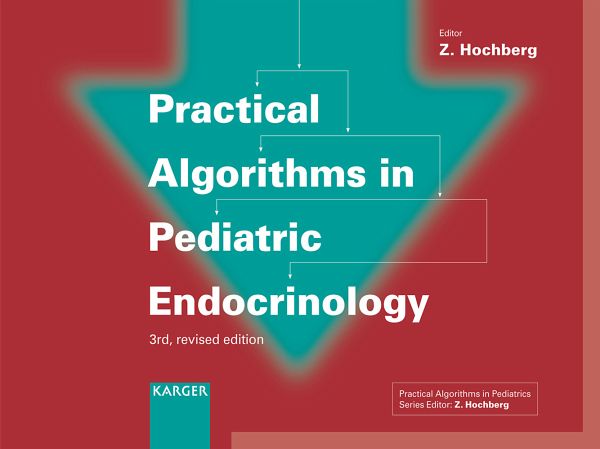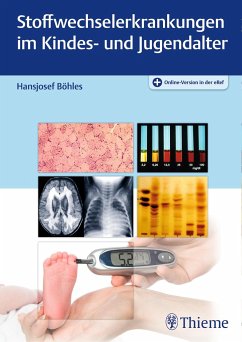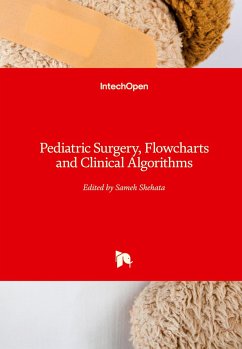
Practical Algorithms in Pediatric Endocrinology
(Practical Algorithms in Pediatrics. Series Editor: Z. Hochberg)
Herausgegeben: Hochberg, Zeev
Versandkostenfrei!
Versandfertig in 1-2 Wochen
41,99 €
inkl. MwSt.

PAYBACK Punkte
21 °P sammeln!
Algorithms provide a logical, concise and cost-effective approach to medical reasoning: utilizing a concise, step-by-step approach based upon clues from the history, physical examination and laboratory studies, algorithms help avoid excessive unnecessary procedures and testing. The 3rd, revised edition of Practical Algorithms in Pediatric Endocrinology deals with practical issues of child growth, puberty, diseases of the endocrine glands, sexual differentiation, as well as aberrations of water, electrolyte, mineral and carbohydrate metabolism. Fifty-six clinical issues are covered by an algori...
Algorithms provide a logical, concise and cost-effective approach to medical reasoning: utilizing a concise, step-by-step approach based upon clues from the history, physical examination and laboratory studies, algorithms help avoid excessive unnecessary procedures and testing. The 3rd, revised edition of Practical Algorithms in Pediatric Endocrinology deals with practical issues of child growth, puberty, diseases of the endocrine glands, sexual differentiation, as well as aberrations of water, electrolyte, mineral and carbohydrate metabolism. Fifty-six clinical issues are covered by an algorithmic approach, breaking down long lists and tables of differential diagnosis into smaller, more manageable ones. Common clinical symptoms, signs and laboratory abnormalities are classified as they present themselves at the patient's bedside. This book is aimed at general practitioners and pediatricians, in particular those who are not exposed to pediatric endocrine problems on a daily basis, and at trainees in endocrinology and pediatric endocrinology as they acquire familiarity with clinical problem solving to make rational choices when facing clinical dilemmas.












